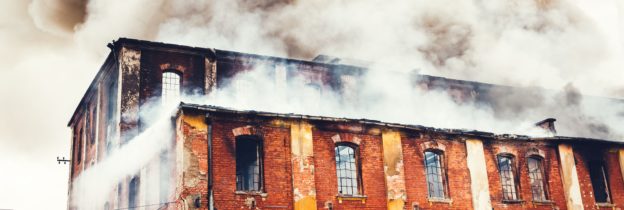Property owners owe a duty of reasonable care to avoid causing harm to neighboring properties. In Steamfitters Local Union No. 602 v. Erie Ins. Exch., 2020 Md. LEXIS 347 (July 27, 2020) (Steamfitters Local), a matter originally discussed in a June 2019 blog post, the Court of Appeals of Maryland affirmed that, where the property owner knows or should have known that people are habitually discarding hundreds of cigarette butts into a mulch bed along the boundary of the neighboring property, the property owner owes a duty to its neighbors to prevent the risk of fire.
As discussed in Steamfitters Local, a fire originated in a strip of mulch at property owned by the Steamfitters Local Union No. 602 (Union) and caused damage to neighboring properties. The fire occurred when an unknown person discarded a cigarette butt into the mulch. Following the fire, investigators found hundreds of cigarette butts in the mulch where the fire originated. A representative for the Union acknowledged that there were more butts in the mulch “than there should have been” and that, “[i]n the right situation,” a carelessly discarded cigarette could cause a fire. The Union, however, had no rules or signs to prohibit or regulate smoking at the property, where apprentices would often gather prior to class. The insurance companies for the damaged neighbors filed subrogation actions alleging that the Union, as the property owner, failed to use reasonable care to prevent a foreseeable fire. A jury found in favor of the subrogating insurers and the defendants appealed.
The Court of Special Appeals held that, under the circumstances of the case, a reasonable jury could conclude that the Union knew or should have known that cigarettes were regularly being discarded in the mulch, which created a foreseeable risk of a fire that could damage neighboring properties. Although the use of mulch, by itself, did not create the Union’s duty to protect its neighbors from a careless smoking fire, the court held that the Union owed a duty of care to its neighbors because it knew that a large number of cigarette butts were discarded in the mulch over a period of time prior to the fire. Because it was foreseeable that the dangerous condition created by the practice of throwing cigarette butts into the mulch would damage neighboring properties, the court held that the Union owed its neighboring property owners a duty of care.
The Court of Appeals of Maryland upheld the decision of the Court of Special Appeals in its entirety and explained that that “ownership, operation, and maintenance of property come with the common law duty to use reasonable care so as not to cause harm to the neighboring property owners. . . [A] duty may arise when, viewing the totality of the circumstances, there exists a hazardous condition and the property owner was on notice of the hazardous condition.” The large number of cigarette butts habitually being tossed into the defendant’s mulch created a hazardous condition for neighboring properties.
In addition to discussing the duty the Union owed to neighboring property owners, the Court of Special Appeals considered, among other things, whether the subrogating insurers needed expert testimony to prove their case. The court held that, because habitually discarding cigarettes in a combustible substance is a matter of common knowledge, the plaintiffs did not need expert testimony to establish the standard of care associated with maintaining the Union’s property. The Court of Appeals of Maryland agreed, holding that since it is common knowledge that that continuously throwing cigarette butts into combustible material (e.g., mulch) creates a risk of fire, expert testimony was not required to establish the defendant’s duty to its neighbors.
This case establishes that a defendant can, in some situations, be held liable for a careless smoking fire even if the defendant does not have a duty to control the actions of third parties and is not vicariously liable for the third party’s actions. In addition, the case confirms that, even if the defendant is a commercial entity, plaintiffs do not always need expert testimony to establish the standard of care.

